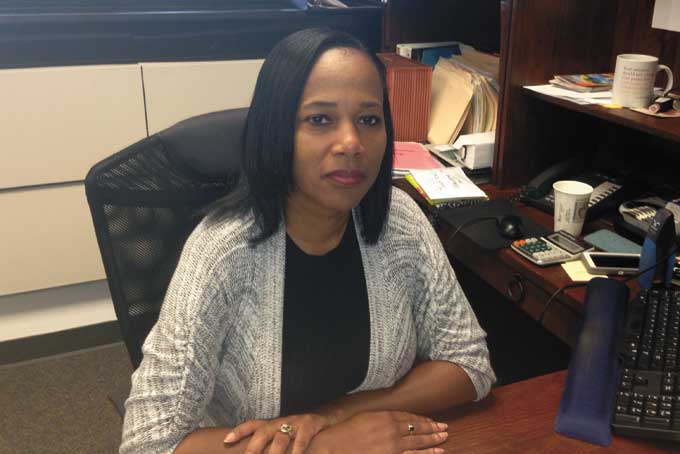
TRISHA GADSON
There remains an epidemic going on in the African-American community in southwestern Pennsylvania, and it is one which there is a “new silence.” There is not enough dialogue and/or conversation happening around the barriers that keep a certain subgroup of individuals who have been diagnosed with HIV/AIDS from following through for treatment. At Macedonia Family And Community Enrichment (FACE) these people are the target population for a program they have been conducting since March 2013; the Minority AIDS Initiative.
This initiative seeks to connect with these individuals who, for a variety of reasons have elected not to seek care. An issue such as this one—folks living with HIV, but are so afraid of the social stigma associated with the disease, they won’t seek medical treatment—allows for the disease to continue to erode our families and thereby our communities. And also adds an additional layer to the ongoing fight against HIV within the African-American Community.
The statistics are grim, African-Americans represent 14 percent of the U.S. population, but account for almost 50 percent of new HIV infections; 1 in 5 adults and adolescents don’t know their HIV status; in Allegheny County African-Americans represent 13 percent of the population, but account for 70 percent of new infections; African-American are the racial/ethnic group most affected by HIV; and in 2010 Black men accounted for 70 percent of all new HIV infections, women account for 1 in 4 HIV/AIDS cases in the U.S., and 2 in 3 are African-Americans.
These numbers create the framework for the work of FACE, a faith-based non-profit community outreach program of Macedonia Church in the Hill District. They have been providing medical case management to people living with HIV and AIDS for more than 15 years. They serve clients who have multiple/complex needs. Their goal is to provide early access and maintenance of treatment, medical care and social services; to delay HIV progression as well as the transmission of HIV/AIDS and to promote and foster self sufficiency and independence through a client centered strength based approach.
The Minority AIDS Initiative backed by federal funds, was established by the CDC for agencies doing work in AIDS prevention in SWPA. FACE received special federal funding in March of this year to begin the work to engage patients living with HIV outside of care.
They are the only African-American organizations to receive funding to implement this program.
According to FACE Executive Director, Trisha M. Gadson, M.S., “Implementing this program started with a great deal of training for my staff which spoke to some of the overriding issues in reaching out to this population.
“One of the main issues we dealt with in preparedness for this program was learning how to manage our biases. This is an essential element to face and handle if we are to be of help to the individuals who need it most.
“HIV/AIDS continues to be as sensitive a topic as it ever was; and the stigma associated is as strong as ever. It is both of these which factor in the decision of some, who have received an HIV diagnosis, to stay out of the care of a physician.” Some say, they don’t seek care because their family does not know they have it, and they don’t want them to know; some say it is because they do not want to be seen coming into a facility that is known in the community for HIV/AIDS treatment; and some don’t seek care because finances are an issue. Gadson said that these are the issues that her staff is trained to handle and it all begins with making the connection.
Either way it goes, it is the combination of these reasons along with individual biases everywhere in the community that keeps fueling social stigma. And therefore open dialogue that needs to happen around HIV/AIDS continues to be prohibited. Working to eliminate bias and encouraging the dialogue, are two important goals for FACE in the execution of this initiative. This is paramount in achieving the program objectives—breaking down barriers and connecting with those who are “out of care” and linking them to health care providers.
For these reasons they work extra hard to create a welcoming, non-judgmental environment and to make sure confidentiality is maintained.
The Macedonia FACE Minority AIDS Initiative has a Facebook page where those who desire more information can connect via the page. The phone number they use goes straight to the case managers, as opposed to the main switchboard and receptionists at FACE; flyers about the program have been placed in strategic locations throughout the community and there is also a stipend of $50 offered for anyone who gets into the program.
“This work is very difficult, because it deals with all the negative dynamics associated with an HIV diagnosis,” Gadson said. “We expect to link as many as we can to appropriate care, and we desire to be part of the catalyst for change that can bring about a strong reduction in the numbers that show African-Americans as yet again, leading the way in such a destructive disease.
“This is extremely important because we know that it is the consistent engagement in treatment that will make a difference in the spread of this disease.”
For information on how to get connected with the Minority AIDS Initiative, you can find them on facebook—MACEDONIA FACE MINORITY AIDS INITIATIVE or you can call 412-377-3089 to speak directly to a case manager who will assist you.
Follow @NewPghCourier on Twitter https://twitter.com/NewPghCourier
Like us at https://www.facebook.com/pages/New-Pittsburgh-Courier/143866755628836?ref=hl
Download our mobile app at https://www.appshopper.com/news/new-pittsburgh-courier